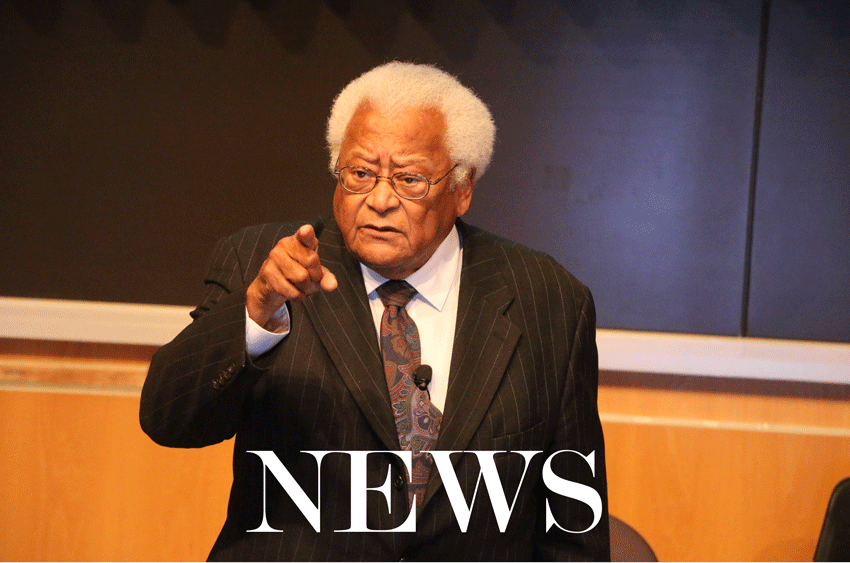Feature: Activists discuss importance of nonviolence movement as part of Violence of Hate Week
January 29, 2016
On Jan.21, activists Nyle Fort and Reverend James Lawson gave a powerful talk titled “Ferguson, Racism, Violence, and the Necessity of Non-Violence.” This event was part of the University’s week-long celebration of Martin Luther King, Jr.
Fort is a Ph.D. student at Princeton University, a grassroots organizer, and a minister in Newark, N.J. Lawson is a former leader of the American Civil Rights Movement, a university professor, and a political and social activist.
Fort and Lawson, ages 26 and 87 respectively, both share a deep devotion to activism despite the generation gap between them.
“What I thought was most impactful about the talk was the reoccurring theme of the power of love and caring for others. I think that their age differences reflected their differences in opinion on how to promote nonviolence to counter violence,” Jahi Omari ’17 said.
Lawson began with an overview of his work as an activist and how Martin Luther King, Jr. was his close colleague during the 1960s protests. He then spoke of the history of nonviolence and how it can benefit the world and economy around us. He provided a historical example about how the Quakers and Native Americans lived in peace with one another and how both parties were able to prosper from their mutual refusal to participate in violence.
“What stood out the most was Rev. Lawson’s example of Quakers and Native Americans coexisting in peace for more than 70 years. I believe that if people are provided with examples of nonviolence actually working, then people will be more convinced that people can live peacefully,” Omari said.
Lawson also stressed to the student audience that they all have the potential to make an impact on the world. He encouraged the students to speak their minds and stand up for their rights and passions.
Fort discussed his activism in Ferguson, Mo. He recounted stories of young activists, emphasizing that young Americans should not be afraid of the world because of the color of their skin.
“Fort [stressed] the importance of telling personal narratives to gain empathy and support from potential allies to fight for nonviolence,” Omari said.
Afterwards, both activists led the student audience in discussing the policies they have developed, ways students can benefit from the nonviolence movement, and how to inspire others to join it.




















